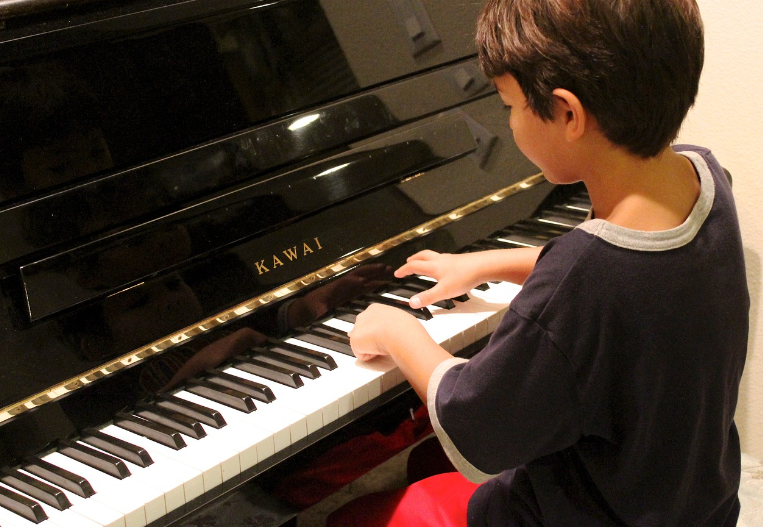The Role of Music in Speech Therapy
For more than 50 years, music has been an integral element of routine care for children with speech impediments and hearing impairments. A great deal of research has been done that examines the role of music in an individual’s general health, as well as how music can be an effective intervention when it comes to speech and language challenges. So, it would only make sense that for both children and adults who struggle with communication issues, music should be considered an important part of their intervention and therapy plan.
Speech therapists use a wide variety of approaches, methods, and activities in their sessions, and each treatment plan is unique and focuses on the specific goals, needs, and strengths of each individual. If you think your child might benefit from speech therapy, you can learn more by scheduling your free introductory call today!
The Connection Between Music and Communication
Language and music are very closely connected at a fundamental level, as both require greater brain function and also involve cognitive skills, including attention, memory, and categorization. Music and grammar also use structures that must follow a particular order to make sense and appreciate it.
In addition, music and speech require a similar pitch. Musical sequences typically follow specific intervals, and speech also requires various frequencies when it comes to intonation, such as when a question is asked or a statement or exclamation is made. This element of speech is often referred to as ‘contour,’ and it is one that even young babies can detect.
How Does Music Therapy Help Communication Skills?
Music can have many benefits when it comes to improving communication skills. Both speech and singing require the coordination of the same mechanisms within the body. In order to speak or sing effectively, the following processes must function:
Respiration – Breathing
Resonance – How airflow is shaped through the nasal and oral cavities
Phonation – Initiating sound
Articulation – Using the teeth and tongue to produce specific speech sounds
Fluency – The ability to produce speech sounds easily and smoothly
By using a variety of interventions that involve singing as well as instrument play, music therapy can help to strengthen these processes to improve overall communication skills. If you want to learn more about the role of music in speech therapy, schedule your free introductory call today!
Can Music Facilitate Speech Recovery and Ease Pain?
The use of music in therapy is an evidence-based practice that uses music to address the cognitive, physical, emotional, and social needs of individuals of all ages. It is beneficial in various settings, such as hospitals and hospices. Music therapy has been proven to be helpful in reducing pain levels, promoting relaxation, improving communication skills, and providing comfort during challenging times.
One way music in therapy can be effective at reducing pain is through the use of rhythmical breathing exercises. These exercises involve focusing on a rhythm while taking slow, deep breaths, promoting relaxation of the body and mind. This type of approach has been shown to lower the heart rate and blood pressure, as well as decrease anxiety levels, all of which can lead to a reduction in overall pain levels.
An additional benefit of music in therapeutic settings is its ability to promote relaxation by providing a pleasant distraction from stressful feelings or thoughts.
Listening to relaxing music and creating a sense of peace and tranquility allows for more effective coping methods when dealing with challenging emotions or situations. In addition, some studies have suggested that specific types of musical interventions can have an analgesic effect because of their ability to activate the release of endorphins in the brain, which function as natural pain relievers.
How Does Music Help with Speech Therapy?
There are so many ways that music can be a beneficial part of speech therapy. The simplest way is through basic auditory stimulation. Music can expand the ability of the brain to process information. This can be beneficial in areas including behavior, skill development, sensory integration, and general coordination. Therefore, individuals who routinely listen to music can improve their speaking abilities as well as their capacity for focus. Auditory stimulation can work just as well during virtual speech therapy sessions as in-person ones.
Adults with speech problems caused by stroke or other forms of traumatic brain injury may benefit from Melodic Intonation Therapy. This is a form of therapy that is often used in situations in which the brain is damaged. This practice is rooted in the theory that using the unaffected hemisphere of the brain will help to gradually recover speech skills that have been lost in the damaged part of the brain. For instance, if an individual loses their ability to speak due to damage to the left side of the brain, MIT can be used to establish new ways to communicate. This type of therapy uses words and phrases that are supplemented by melodies, making the process of speaking closely resemble that of singing. MIT also takes advantage of the individual’s ability to sing, which in turn helps them improve their ability to speak.
For children, there are many different ways that speech therapists use music in their treatment sessions. The goal of using music in speech therapy is to help promote their language development, improve and ease their speech production, and support their overall communication skills. A recent study showed that children displayed significant improvement in their problem-solving skills, social skills, and how they interacted with others when music was a part of their speech therapy treatment plans.
Speech therapy can benefit individuals of all ages with a wide range of skills and challenges. If you would like to learn more about virtual speech therapy, get started by scheduling your free introductory call today!
